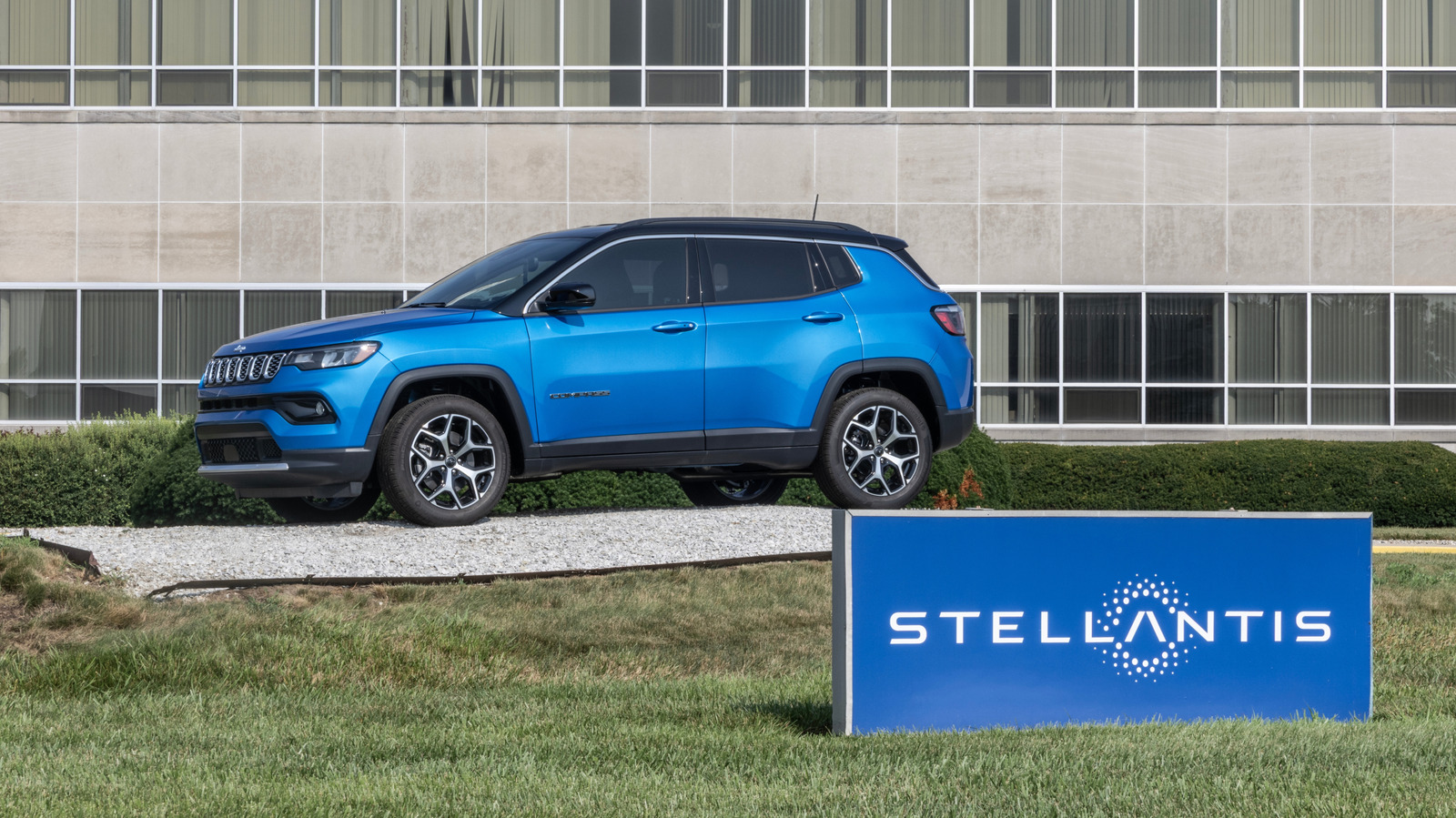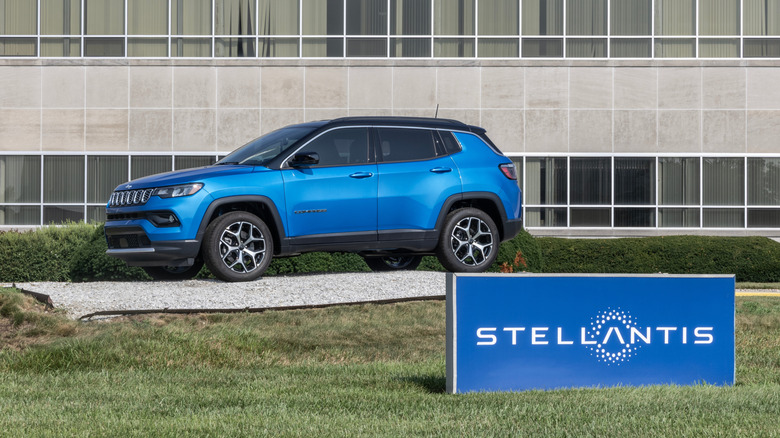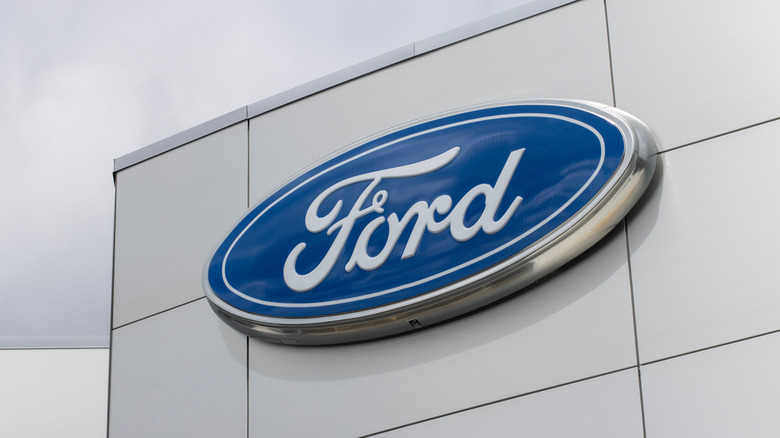Good morning! It’s Tuesday, July 29, 2025, and this is The Morning Shift, your daily roundup of the top automotive headlines from around the world, in one place. This is where you’ll find the most important stories that are shaping the way Americans drive and get around.
In this morning’s edition, Stellantis prepares to take a massive hit on tariffs in the second half of 2025, Union Pacific just closed a mega-deal to buy Norfolk, Ford gets billions in credit to help weather the storm and Waymo is expanding to a new city.
1st Gear: Tariffs are hitting Stellantis hard
Every day has to feel like a waking nightmare if you work at Stellantis. The Transatlantic automaker just cannot catch a break between slow sales, reliability issues and corporate mismanagement. Now, the company says it expects to take a $1.4 billion hit in the second half thanks to President Trump’s tariff nightmare. That comes despite the fact that Trump and the European Union came to an agreement on a 15% duty on cars and other goods.
Stellantis did a pretty good job of limiting the impact of tariffs in the first half to about $346 million in the first half of the year, but it won’t be able to contain those costs for long. Its main exposure comes from 25% tariffs on vehicles built in Canada and Mexico and sold in the U.S., but it also has to deal with Alfa Romeo, Dodge and Maserati vehicles imported from Europe. In total, 40% of the 1.2 million vehicles Stellantis sold in this country were imports. From Automotive News:
The automaker, which has stabilized its leadership after company veteran Antonio Filosa was appointed CEO, also reinstated its financial guidance, which it had withdrawn in April, citing an evolving trade scenario and uncertain impact of U.S. tariffs.
Stellantis now sees a low-single digit adjusted operating income margin for the second half. The group also forecast improved industrial free cash flow in the second half compared with the first six months, when it burned €3 billion in cash.
“Our new leadership team, while realistic about the challenges, will continue making the tough decisions needed to re-establish profitable growth and significantly improved results,” Filosa said in a statement.
Filosa faces the challenges of revamping product ranges, and regaining market share and investors’ confidence.
Revenue declined in the first six months of the year after deliveries fell in Europe, North America, the Middle East and Africa. One bright spot was South America, where deliveries actually increased.
In the first half, deliveries in North America declined by 23% to 647,000 vehicles. That drop can primarily be blamed on reduced production of imported vehicles that are heavily impacted by tariffs. Net revenue in North America also declined by 26% to about $32.5 billion.
Things aren’t looking too great for everyone’s (read: my) favorite automaker right now. Here’s hoping Filosa can pull it together.
2nd Gear: An $85 billion railroad mega merger
Choo choo! Union Pacific is buying Norfolk Southern in a massive $85 billion deal that is set to create the U.S.’s first coast-to-coast freight rail operation. The move is expected to reshape the way goods (like cars) are transported across the U.S. If it’s approved, the deal would end up being the largest-ever railroad buyout, and it would combine Union Pacific’s stronghold in the western two-thirds of the country with Norfolk’s 19,500-mile network that crosses through 22 eastern states.
The two railroads are expected to have a combined value of around $250 billion. That’s a lot of cash, but this is a lot of railroad. It’s also going to be a long time before the deal is made official. From Reuters:
The deal will face lengthy regulatory scrutiny amid union concerns over potential rate increases, service disruptions and job losses. The 1996 merger of Union Pacific and Southern Pacific had temporarily led to severe congestion and delays across the Southwest.
The deal reflects a shift in antitrust enforcement under U.S. President Donald Trump’s administration. Executive orders aimed at removing barriers to consolidation have opened the door to mergers that were previously considered unlikely.
Surface Transportation Board Chairman Patrick Fuchs, appointed in January, has advocated for faster preliminary reviews and a more flexible approach to merger conditions.
Even under an expedited process, the review could take from 19 to 22 months, according to a person involved in the discussions.
Obviously, not everybody is on board with a merger of this size.
Major railroad unions have long opposed consolidation, arguing that such mergers threaten jobs and risk disrupting rail service.
“We will weigh in with the STB (regulator) and with the Trump administration in every way possible,” said Jeremy Ferguson, president of the SMART-TD union’s transport division, after the two companies said they were in advanced talks last week.
“This merger is not good for labor, the rail shipper/customer or the public at large,” he said.
So the deal is good for business but bad for workers and consumers? Doesn’t that sound like the perfect deal to get done under the Trump administration?
3rd Gear: Ford gets billions from new line of credit
If the bank just rejected your loan request to buy a house or a car, maybe don’t read this story. It’ll just piss you off. Ford is in the process of securing access to a $3 billion line of credit with several lenders that’ll be administered through JPMorgan Chase Bank. The money is there in case costs related to tariffs get out of hand.
Ford will be able to pull from that $3 billion pot through July 28, 2026, and any loans drawn under the credit agreement during that time will mature at the very end of 2028. Of course, Ford isn’t getting this money for nothing. As part of the loan conditions, the Blue Oval must maintain at least $4 billion of its own cash on hand. From the Detroit Free Press:
Ford spokesman Ian Thibodeau declined to provide specific reasons as to why Ford took out the line of credit, saying only that the “credit’s there in case we need it.”
[…]
Companies usually enter into loan agreements when they see economic uncertainty ahead, but still desire to invest in and grow the business. Experts have noted in recent weeks many signs that raise concerns across the auto industry.
[…]
Matt Blunt, who heads the American Automotive Policy Council that represents the Detroit Three automakers, said on July 22 they were still reviewing the trade agreement but “any deal that charges a lower tariff for Japanese imports with virtually no U.S. content than the tariff imposed on North American built vehicles with high U.S. content is a bad deal for U.S. industry and U.S. auto workers.”
There also have been some economic indicators that point to a possible recession, which have kept some new-vehicle shoppers on the sidelines, slowing auto sales in June and forcing more new-car discounts to move inventory in July.
I’ll tell you what: I’d really like a $3 billion line of credit. I would certainly use that money better than Ford would.
4th Gear: Waymo coming to Dallas
Waymo is apparently getting ready to roll out its autonomous ride-hailing vehicle service in Dallas sometime next year. The Alphabet-owned company will operate through a new multi-year partnership with car rental company Avis. It’ll manage fleet operations such as maintenance and depot infrastructure. From Reuters:
Waymo currently serves more than 250,000 paid trips every week with about 1,500 vehicles in cities such as Phoenix, San Francisco, Los Angeles, and Austin.
This year, Waymo began its service in Austin exclusively on the Uber platform, months before Tesla started a limited robotaxi trial in the city with about a dozen Model Y SUVs and a human safety monitor in the front passenger seat.
[…]
The collaboration is part of Avis’ broader strategy to evolve from a traditional rental car company into a mobility services provider.
Similar to other markets, rides will be available through the Waymo app. The company is also planning to launch its service in Miami and Washington, D.C. in the next year as well.
Reverse: The standard of the world
Cadillac has had its ups and downs over the past 116 years, but throughout that entire time, it has always stood for American luxury. Of course, American luxury wasn’t always perfect. Who among us has been? If you want to read more about GM’s past with Cadillac, check out History.com.
On the radio: Natasha Bedingfield – These Words
There’s something deeply satisfying about how this song sounds, and I’m positive it’s going to make your Tuesday far more bearable. Take a listen.








